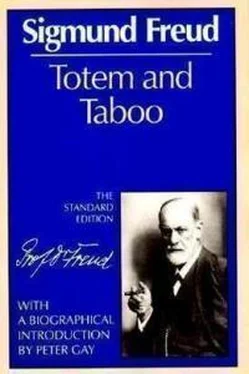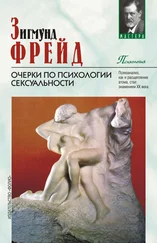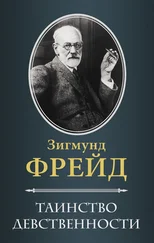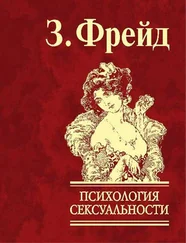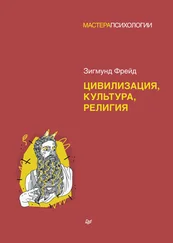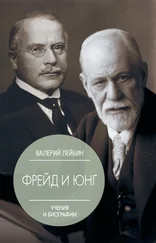Зигмунд Фрейд - Totem and Taboo
Здесь есть возможность читать онлайн «Зигмунд Фрейд - Totem and Taboo» весь текст электронной книги совершенно бесплатно (целиком полную версию без сокращений). В некоторых случаях можно слушать аудио, скачать через торрент в формате fb2 и присутствует краткое содержание. Год выпуска: 2014, Издательство: epubBooks Classics, Жанр: Психология, на английском языке. Описание произведения, (предисловие) а так же отзывы посетителей доступны на портале библиотеки ЛибКат.
- Название:Totem and Taboo
- Автор:
- Издательство:epubBooks Classics
- Жанр:
- Год:2014
- ISBN:нет данных
- Рейтинг книги:3 / 5. Голосов: 1
-
Избранное:Добавить в избранное
- Отзывы:
-
Ваша оценка:
- 60
- 1
- 2
- 3
- 4
- 5
Totem and Taboo: краткое содержание, описание и аннотация
Предлагаем к чтению аннотацию, описание, краткое содержание или предисловие (зависит от того, что написал сам автор книги «Totem and Taboo»). Если вы не нашли необходимую информацию о книге — напишите в комментариях, мы постараемся отыскать её.
Totem and Taboo — читать онлайн бесплатно полную книгу (весь текст) целиком
Ниже представлен текст книги, разбитый по страницам. Система сохранения места последней прочитанной страницы, позволяет с удобством читать онлайн бесплатно книгу «Totem and Taboo», без необходимости каждый раз заново искать на чём Вы остановились. Поставьте закладку, и сможете в любой момент перейти на страницу, на которой закончили чтение.
Интервал:
Закладка:
The knowledge of hidden psychic feelings which psychoanalytic investigation of individuals has given us, makes it possible to add other motives to the above. Where the psycho–sexual needs of the woman are to be satisfied in marriage and family life, there is always the danger of dissatisfaction through the premature termination of the conjugal relation, and the monotony in the wife’s emotional life. The ageing mother protects herself against this by living through the lives of her children, by identifying herself with them and making their emotional experiences her own. Parents are said to remain young with their children, and this is, in fact, one of the most valuable psychic benefits which parents derive from their children. Childlessness thus eliminates one of the best means to endure the necessary resignation imposed upon the individual through marriage. This emotional indentification with the daughter may easily go so far with the mother that she also falls in love with the man her daughter loves, which leads, in extreme cases, to severe forms of neurotic ailments on account of the violent psychic resistance against this emotional predisposition. At all events the tendency to such infatuation is very frequent with the mother–in–law, and either this infatuation itself or the tendency opposed to it joins the conflict of contending forces in the psyche of the mother–in–law. Very often it is just this harsh and sadistic component of the love emotion which is turned against the son–in–law in order better to suppress the forbidden tender feelings.
The relation of the husband to his mother–in–law is complicated through similar feelings which, however, spring from other sources. The path of object selection has normally led him to his love object through the image of his mother and perhaps of his sister; in consequence of the incest barriers his preference for these two beloved persons of his childhood has been deflected and he is then able to find their image in strange objects. He now sees the mother–in–law taking the place of his own mother and of his sister’s mother, and there develops a tendency to return to the primitive selection, against which everything in him resists. His incest dread demands that he should not be reminded of the genealogy of his love selection; the actuality of his mother–in–law, whom he had not known all his life like his mother so that her picture can be preserved unchanged in his unconscious, facilitates this rejection. An added mixture of irritability and animosity in his feelings leads us to suspect that the mother–in–law actually represents an incest temptation for the son–in–law, just as it not infrequently happens that a man falls in love with his subsequent mother–in–law before his inclination is transferred to her daughter.
I see no objection to the assumption that it is just this incestuous factor of the relationship which motivates the avoidance between son–and mother–in–law among savages. Among the explanations for the ‘avoidances’ which these primitive races observe so strictly, we would therefore give preference to the opinion originally expressed by Fison, who sees nothing in these regulations but a protection against possible incest. This would also hold good for all the other avoidances between those related by blood or by marriage. There is only one difference, namely, in the first case the incest is direct, so that the purpose of the prevention might be conscious; in the other case, which includes the mother–in–law relation, the incest would be a phantasy temptation brought about by unconscious intermediary links.
We have had little opportunity in this exposition to show that the facts of folk–psychology can be seen in a new light through the application of the psychoanalytic point of view, for the incest dread of savages has long been known as such, and is in need of no further interpretation. What we can add to the further appreciation of incest dread is the statement that it is a subtle infantile trait and is in striking agreement with the psychic life of the neurotic. Psychoanalysis has taught us that the first object selection of the boy is of an incestuous nature and that it is directed to the forbidden objects, the mother and the sister; pyschoanalysis has taught us also the methods through which the maturing individual frees himself from these incestuous attractions. The neurotic, however, regularly presents to us a piece of psychic infantilism; he has either not been able to free himself from the childlike conditions of psychosexuality, or else he has returned to them (inhibited development and regression). Hence the incestuous fixations of the libido still play or again are playing the main rôle in his unconscious psychic life. We have gone so far as to declare that the relation to the parents instigated by incestuous longings is the central complex of the neurosis. This discovery of the significance of incest for the neurosis naturally meets with the most general incredulity on the part of the grown–up, normal man; a similar rejection will also meet the researches of Otto Rank, which show in even larger scope to what extent the incest theme stands in the centre of poetical interest and how it forms the material of poetry in countless variations and distortions. We are forced to believe that such a rejection is above all the product of man’s deep aversion to his former incest wishes which have since succumbed to repression. It is therefore of importance to us to be able to show that man’s incest wishes, which later are destined to become unconscious, are still felt to be dangerous by savage races who consider them worthy of the most severe defensive measures.
Chapter II
Taboo and the Ambivalence of Emotions
Taboo is a Polynesian word, the translation of which provides difficulties for us because we no longer possess the idea which it connotes. It was still current with the ancient Romans: their word ‘sacer’ was the same as the taboo of the Polynesians. The [Greek: ἁγος hagos] of the Greeks and the Kodaush of the Hebrews must also have signified the same thing which the Polynesians express through their word taboo and what many races in America, Africa (Madagascar), North and Central Asia express through analogous designations.
For us the meaning of taboo branches off into two opposite directions. On the one hand it means to us sacred, consecrated: but on the other hand it means, uncanny, dangerous, forbidden, and unclean. The opposite for taboo is designated in Polynesian by the word noa and signifies something ordinary and generally accessible. Thus something like the concept of reserve inheres in taboo; taboo expresses itself essentially in prohibitions and restrictions. Our combination of ‘holy dread’ would often express the meaning of taboo.
The taboo restrictions are different from religious or moral prohibitions. They are not traced to a commandment of a god but really they themselves impose their own prohibitions; they are differentiated from moral prohibitions by failing to be included in a system which declares abstinences in general to be necessary and gives reasons for this necessity. The taboo prohibitions lack all justification and are of unknown origin. Though incomprehensible to us they are taken as a matter of course by those who are under their dominance.
Wundt [32] Voelkerpsychologie , II. Band: Mythus und Religion , 1906, II, p. 308.
calls taboo the oldest unwritten code of law of humanity. It is generally assumed that taboo is older than the gods and goes back to the pre–religious age.
As we are in need of an impartial presentation of the subject of taboo before subjecting it to psychoanalytic consideration I shall now cite an excerpt from the article Taboo in the Encyclopedia Britannica written by the anthropologist Northcote W. Thomas [33] Eleventh Edition; this article also gives the most important references.
:
Интервал:
Закладка:
Похожие книги на «Totem and Taboo»
Представляем Вашему вниманию похожие книги на «Totem and Taboo» списком для выбора. Мы отобрали схожую по названию и смыслу литературу в надежде предоставить читателям больше вариантов отыскать новые, интересные, ещё непрочитанные произведения.
Обсуждение, отзывы о книге «Totem and Taboo» и просто собственные мнения читателей. Оставьте ваши комментарии, напишите, что Вы думаете о произведении, его смысле или главных героях. Укажите что конкретно понравилось, а что нет, и почему Вы так считаете.
